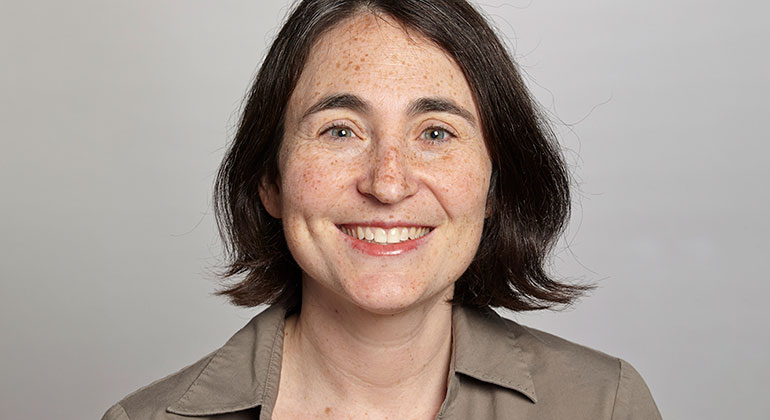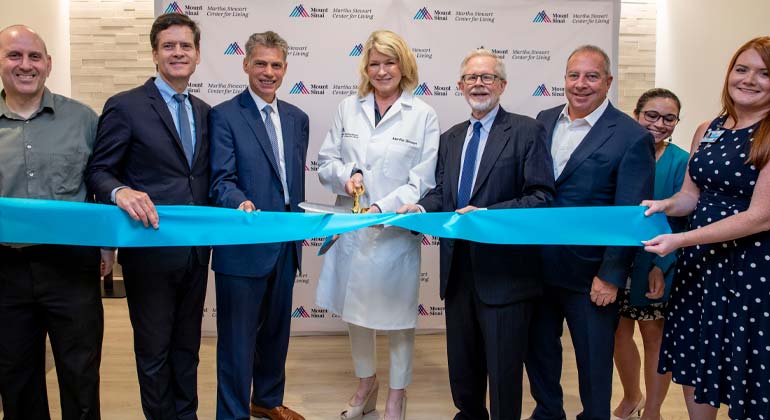Palliative Care Offers Greater Cost Savings for Cancer Patients with Multiple Chronic Conditions
Patients with incurable cancer and numerous other serious health conditions who consulted with a palliative care team within two days of hospitalization had significant savings in hospital costs, according to a new study led by researchers at the Icahn School of Medicine at Mount Sinai. Published today in the January issue of the journal Health Affairs, the study also determined that the higher number of serious coexisting conditions patients had, the greater reduction in direct hospital costs.
While previous studies have shown the link between palliative care and lower costs, this is the first study to examine whether the effect of palliative care consultation varies by the number of co-existing chronic conditions. Researchers compared a treatment group of advanced cancer patients with numerous serious health conditions (also known as comorbidities) from six hospitals who were seen by a palliative care team with a separate group who received usual care. Findings indicated that patients from the treatment group on average had a 22 percent reduction in costs compared to the group that did not receive palliative consultation. Data showed that patients with the highest number of comorbidities had up to a 32 percent reduction in costs. The study’s findings suggest that early palliative consultations with the sickest patients may decrease unwanted aggressive end-of-life care, as well as shorten length of stays in hospital.
Palliative care is a team-based specialty (incorporating medicine, nursing, social work and chaplaincy) focused on improving quality of life for people with serious illnesses by adding a layer of support for patients, their families, and health care providers. It is provided in conjunction with all other appropriate medical treatments, including curative and life-prolonging therapies. Programs using palliative care consultation teams have rapidly expanded in recent years. Today, over 90 percent of medium-size to large U.S. hospitals now have palliative care teams.
“We already know that coordinated, patient-centered palliative care improves care quality, enhances survival, and reduces costs for persons with cancer,” said R. Sean Morrison, MD, Director of the National Palliative Care Research Center and Professor of Geriatrics and Palliative Medicine, Icahn School of Medicine at Mount Sinai and lead author of the study. “Our latest research now shows the strong association between cost and the number of co-occurring conditions. Among patients with advanced cancer and other serious illnesses, aggressive treatments are often inconsistent with patients’ wishes and are associated with worse quality of life compared to other treatments. It is imperative that policymakers act to expand access to palliative care.”
Patients with multimorbidities account for a high proportion of U.S. health care spending. They also comprise two-thirds of Medicare beneficiaries and account for almost half of the program’s total spending. According to the Centers for Medicare and Medicaid Services (CMS), over the next decade, annual Medicare expenditures will increase by 98 percent and total annual national health spending will grow by 76 percent, reaching $5.4 trillion. Increasing access to palliative care during hospitalization for patients with advanced cancer and multiple chronic conditions could both improve care and help curb the growth of health care spending.
“The fact that we found greater cost savings for cancer patients with more comorbidities than for those with fewer comorbidities raises the question of whether similar results would be observed in patients with other serious illnesses and multimorbidity,” said Professor Peter May of Trinity College Dublin and a former visiting research fellow in the Department of Geriatrics and Palliative Medicine at the Icahn School of Medicine at Mount Sinai and co-author of the study. “Future research is also needed to determine when in the course of illness palliative care is most cost-effective.”
The study was supported by the National Cancer Institute (NCI) and the National Institute of Nursing Research. Additional collaborators include researchers from Johns Hopkins University, Trinity College Dublin, Virginia Commonwealth University and James J. Peters VA Medical Center.
About the Mount Sinai Health System
Mount Sinai Health System is one of the largest academic medical systems in the New York metro area, with 48,000 employees working across eight hospitals, more than 400 outpatient practices, more than 600 research and clinical labs, a school of nursing, and a leading school of medicine and graduate education. Mount Sinai advances health for all people, everywhere, by taking on the most complex health care challenges of our time—discovering and applying new scientific learning and knowledge; developing safer, more effective treatments; educating the next generation of medical leaders and innovators; and supporting local communities by delivering high-quality care to all who need it.
Through the integration of its hospitals, labs, and schools, Mount Sinai offers comprehensive health care solutions from birth through geriatrics, leveraging innovative approaches such as artificial intelligence and informatics while keeping patients’ medical and emotional needs at the center of all treatment. The Health System includes approximately 9,000 primary and specialty care physicians and 11 free-standing joint-venture centers throughout the five boroughs of New York City, Westchester, Long Island, and Florida. Hospitals within the System are consistently ranked by Newsweek’s® “The World’s Best Smart Hospitals, Best in State Hospitals, World Best Hospitals and Best Specialty Hospitals” and by U.S. News & World Report's® “Best Hospitals” and “Best Children’s Hospitals.” The Mount Sinai Hospital is on the U.S. News & World Report® “Best Hospitals” Honor Roll for 2024-2025.
For more information, visit https://www.mountsinai.org or find Mount Sinai on Facebook, Twitter and YouTube.
Mount Sinai Medical-Legal Partnership Expands Legal Services for Neediest Patients
Nov 08, 2019 View All Press Releases
